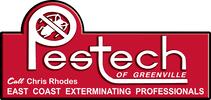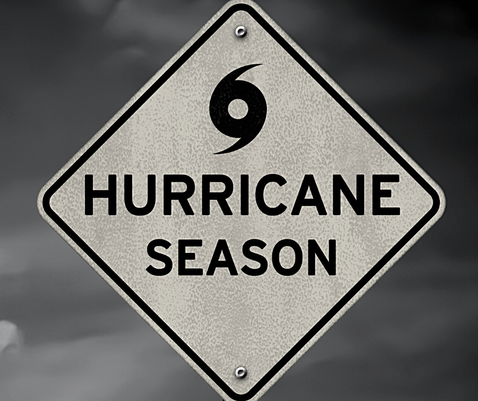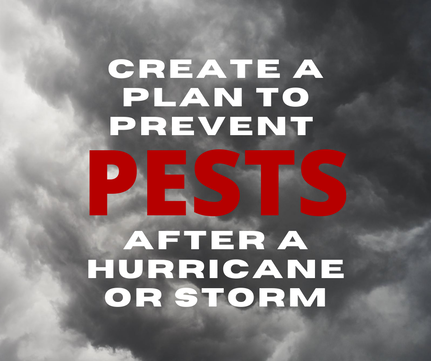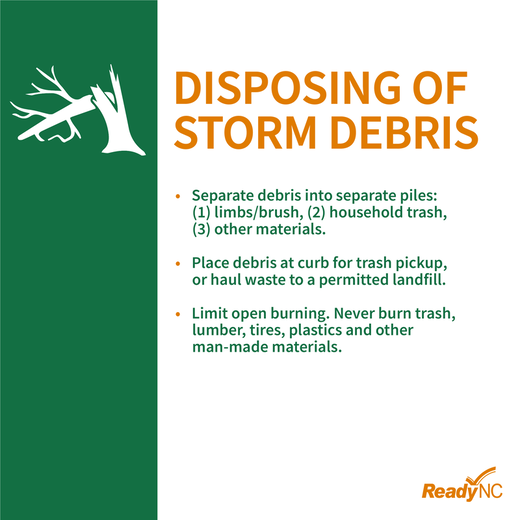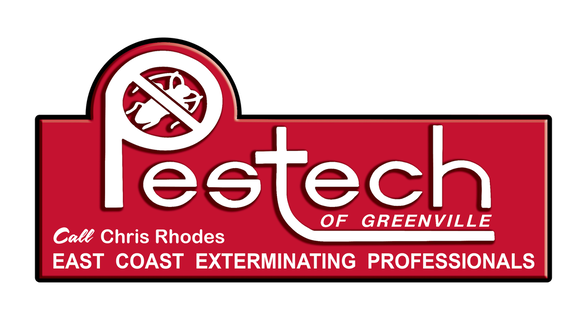|
As we continue through the Atlantic Hurricane Season in eastern North Carolina, Pestech of Greenville is sharing important information on preventing pests after a storm. Hurricane season runs from June 1 through November 30 of each year. During this time, the North Carolina’s coastal communities and even inland regions are known to experience heavy rain, wind, storm surge, and flooding. We recently posted a blog about how you can prepare your homes and properties ahead of a storm with pest prevention in mind. Just as you prepare for a potential severe weather event, we also have several suggestions after a storm and as you move through the recovery process to minimize bugs and rodent issues. Here are four simple steps you can take after a storm to prevent pests: 1. Clean Up DebrisHurricanes and storms are known to cause debris on property. Vegetative debris creates the perfect home for many insects and pests who are looking for shelter. This can include downed trees, broken limbs, and brush. The North Carolina Emergency Management Department recommends separating debris into three different piles when you clean up your yard.
Vegetative: Dispose of these types separately and safely. Carefully check this type of debris for animals or insects living within the cracks and crevices. Then, place limbs, brush, and leaves at your curb for trash pickup. When doing so, be sure not to block roadways, fire hydrants and utility boxes. Local officials can provide information on removal procedures so be sure to check with your municipality. Household Trash: When it comes to household trash, you’ll want to dispose of it quickly to prevent pests from lingering. As we explained in our previous blog about preparation for a storm, if trash ends up in yards or on roads, insects like flies and rodents like rats, will be attracted to it. If you see trash on your property, it is important to pick it up immediately.If your power went out during the storm, you’ll also want to remove spoiled food from your refrigerator and/or freezer. Spoiled food and trash should quickly be taken to your local waste collection site. Other Materials: If you have other materials or potentially hazardous waste to dispose, check with your city or town for guidelines and regulations. If you choose to burn debris, state officials say to limit open burning and never burn trash, lumber, tires, plastics and other man-made materials. Click here to read the North Carolina Emergency Management Debris Removal Guide. 2. Assess Home for DamageAfter the storm, carefully check your home and property. You’ll want to inspect for roof, siding, window and door damage. If you notice cracks or holes, seal them immediately to prevent pests from entering. If you're missing flashing, gutters, or shingles, those will all need to be replaced as well. Be sure to take photos of damage and document the conditions so you can report a claim with your insurance company. As you assess your property, be aware of any potential wildlife that may have entered your homes. According to the Center for Disease Control and Prevention, animals like snakes, rats, squirrels, and various insects have been encountered in homes after hurricanes. Click here to learn more from the CDC about rodent control after a natural disaster. 3. Remove Standing WaterPestech of Greenville encourages homeowners and renters to remove standing water from their properties throughout the year. This is encouraged as a way to prevent breeding grounds for mosquitoes. However, after a hurricane, it is especially important to quickly remove standing water from various areas of your property. It doesn’t take a lot of water to become the perfect place for mosquitoes to breed and populate. After a hurricane, be sure to remove water from puddles, flower pots, buckets, rain barrels, bird baths, pet bowls, discarded tires, lids, tarps, and grill covers. Speaking of water, unfortunately, hurricanes can cause significant flooding in homes. Homeowners and renters insurance plans typically don’t cover flood damage. Without flood insurance, most residents have to pay out of pocket or take out loans to repair and replace damaged items. With flood insurance, you’re able to recover much faster. If you’d like to learn more about flood insurance and your flood risk, click here to visit North Carolina’s free property risk resource website. 4. Contact Pestech of GreenvilleOur fully licensed integrated pest control team at Pestech of Greenville can conduct a full interior and exterior survey of your house or other property. With a thorough inspection, our technicians can point out any problems or issues that need to be addressed after a hurricane or storm. In the past, our specialists have pointed out structural damage, cracks that can allow pests to enter, and holes where moisture can seep in. Our team is also knowledgeable about identifying issues including ants, termites, and other wood destroying insects. No matter your pest problem or concern, Pestech of Greenville, Inc. is here to help. Our experts can assist in your various pest management needs. Give us a call at 252-353-4760 for a free estimate. Your East Coast pest management professionals are honored to serve you. If you’d like additional information about hurricanes in North Carolina, click here to download the 2020 Hurricane Guide from the North Carolina Department of Emergency Management.
0 Comments
Your comment will be posted after it is approved.
Leave a Reply. |
|
|
HOW ARE WE DOING? (Google review embedded here)
Copyright © 2023
PESTECH OF GREENVILLE, INC.
PESTECH OF GREENVILLE, INC.
